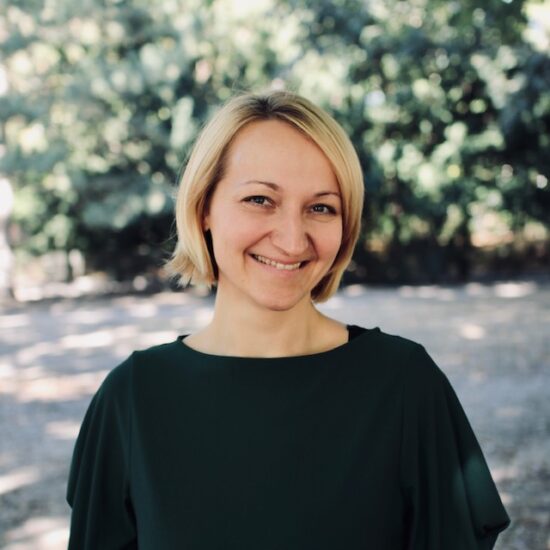Shine with shiatsu journal
Grief and its effects on the body. And how Shiatsu can help.
Grief is often thought of as an emotional response to loss, but its effects extend far beyond the realm of feelings. Since our bodies and emotions are interconnected, so is the impact of grief on the physical well-being of an individual widely overlooked.
In this article I will dive into the most common reactions to grief and how it manifests on the physical level. At the end of the article, I will also share how Shiatsu as bodywork can support people in processing their experience.
1. Grieving is always individual
There is no right response to grief. Grieving is a complex and individual process. However, there are common physical reactions that many people experience after a loss. They can be influenced by many factors such as the nature of the relationship with the deceased, our personal coping mechanisms and the environment we live in.
The list I’ve put together is based on research that I’ve found and on observation and discussion with my clients, that I’ve been working with over recent years.
2. How your body feels when you grieve
One thing we know for sure: Grieving means stress for the body. And stress always creates a risk for health. How individuals respond to stress depends from person to person. Suppressing challenging emotions, like grief or anger over a longer period of time, can lead to a negative impact on physical and emotional well-being. In some cases this can lead to Prolonged Grief Disorder (PGD) or Post Traumatic Stress Disorder (PTSD).
„How is it possible that the world keeps turning, breathing in and out unchanged, while there is permanent chaos in my soul“? – Chimamanda Ngozi Adichie
Here are some common ways the body might feel when grieving:
2.1. Lowered immune system
Grief triggers a stress response in the body, leading to an increase in stress hormones like cortisol. At the same time research showed that if you are grieving, you are more likely to have lower levels of natural killer cells and lymphocytes. This can weaken the immune system, leaving the body more susceptible to inflammation and illness.
2.2 Chest problems & infections
Very often grief can be accompanied by a tight feeling in the chest. Many people describe it as a physical sensation of heaviness, as if something is pressing down on them. In Traditional Chinese Medicine (TCM) grief is associated with the element of metal – that is connected with the organ of the lungs, as well as the large intestine.
„A healthy metal energy does not prevent us from experiencing grief, but it does prevent us from remaining trapped in it. It makes us open to new possibilities“ – Carola Beresford-Cooke
Both organs play a vital role in receiving and letting go. This happens while we breathe but also relates to emotional processes. If we are unable to express grief, it will weaken the lungs. Prolonged grief impacts negatively on the respiratory system leading to issues like chest and lung infections, shallow breathing, shortness of breath or even asthma.
2.3 Heart problems
Discomfort in the chest area can be linked to issues with the physical organ of the heart. The stress hormones released during grief, can raise blood pressure and increase the risk of heart problems. In some cases this can lead to a form of heart disease, that scientists called „the broken heart syndrome“. This is not just a metaphor but a real issue with the heart with similar symptoms like a real heart attack.
2.4. Physical & mental fatigue
Grief is often accompanied by tiredness and decreased energy levels, which often leads to exhaustion. People have shared that they are absent minded, have difficulties to concentrate, or that their thoughts go around in circles. The only thing they can think of is the deceased person. This leaves them cut off, lonely and in a state of hopelessness.
2.5. Disrupted sleep
Grief often disrupts sleep. The high level of cortisol interfere with the natural sleep pattern. This makes is difficult to fall asleep or sleep through the night, leading to irregular sleep, insomnia or nightmares. This lack of restorative sleep creates a vicious circle. The bereaved person wakes up in the morning feeling tired and exhausted.
“Grief is not transparent, it is substantial, oppressive, something impenetrable. The heaviest feeling is in the morning, after sleeping: a leaden heart, a stubborn reality that won’t go away. I will never see my father again. Never again. I have the feeling of waking up only to sink and sink some more. In these moments I am sure that I never want to face the world again”(Chimamanda Ngozi Adichie)
2.6. Digestive issues
The stress response triggered by grief can affect digestion. Many people experience stomach pain, nausea or worsening of their irritable bowel syndrome (IBS). It has been well researched that the gut is highly sensitive to emotional stress. Feelings of anger, anxiety or sadness manifest in digestive pain.
2.7. Changes in appetite
Grief can also lead to changes in appetite, causing both weight loss or weight gain. It has been observed that bereaved people are sensitive to taste or smell. They often experience a lack of interest in food. On the other side, an increase of cortisol can stimulate appetite and lead to overeating.
2.8. Muscle pain
Emotional distress can cause muscles to tense up, leading to headaches, backaches, and generalized muscle pain. This could be due to the body’s response to stress. Chronic muscle tension often contributes to long-term discomfort.
3. How Shiatsu can help when you grieve
Grief has no time stamp. There is no time when grief should be over or finished. Sometimes it never does. At some stage we might come to accept it and live with it.
3.1 Grief deserves space
I believe that grief is not something we have to overcome. It is there to be witnessed and acknowledged.
For this to happen, we have to create a conscious space. To welcome grief in our life. Shiatsu is an invitation to arrive in the here and now. With all the uncertainties and feelings that are present.
You are welcome as you are. With your tiredness, your confusion, your questions, your frustration. Regardless if the loss happened 10 months or 10 years ago. Regardless if you’ve lost a parent, a sibling, a child, a grandparent, a pet, an important relationship or a dream.
3.2 Allowing all feelings to come up
When we relax in our body, when we connect to our inner sensations, we stop running away from the pain. We are ready to look at it.
“The opposite of depression is expression. What comes out of you doesn’t make you sick; what stays in there does.” ― Edith Eger
Shiatsu has the capacity to turn your awareness inwards. To observe your feelings, but also to actually feel them.
An important part of my Shiatsu session is sharing. We talk before the treatment, which helps me understand your needs. But I also offer you to exchange afterwards. This helps to speak things out, share your thoughts, bring them to light. This moment of self reflection is very powerful. Because it comes from you. Your body and your awareness, your inner voice speaking to you.
3.3 Honoring your journey
Shiatsu does not have the power to take away your pain. But it will allow you to stop for a moment and breath out. Your grief is a unique path, that wants to be valued and respected. You will be gently held in a space without pressure to perform, without any expectations. I am here to support you on your journey.
If you are interested in working with me, please get in touch or book a session in my practice in Berlin.
With love,
Aleksandra
Bibliography:
- Carola Beresford-Cooke “Shiatsu Theory and Practice”. Singing Dragon.
- Chimamanda Ngozi Adichie: “Notes on Grief”. Random House of Canada.
- Edith Eger: “The Gift. A survivor’s guide to freedom”. Random House.



